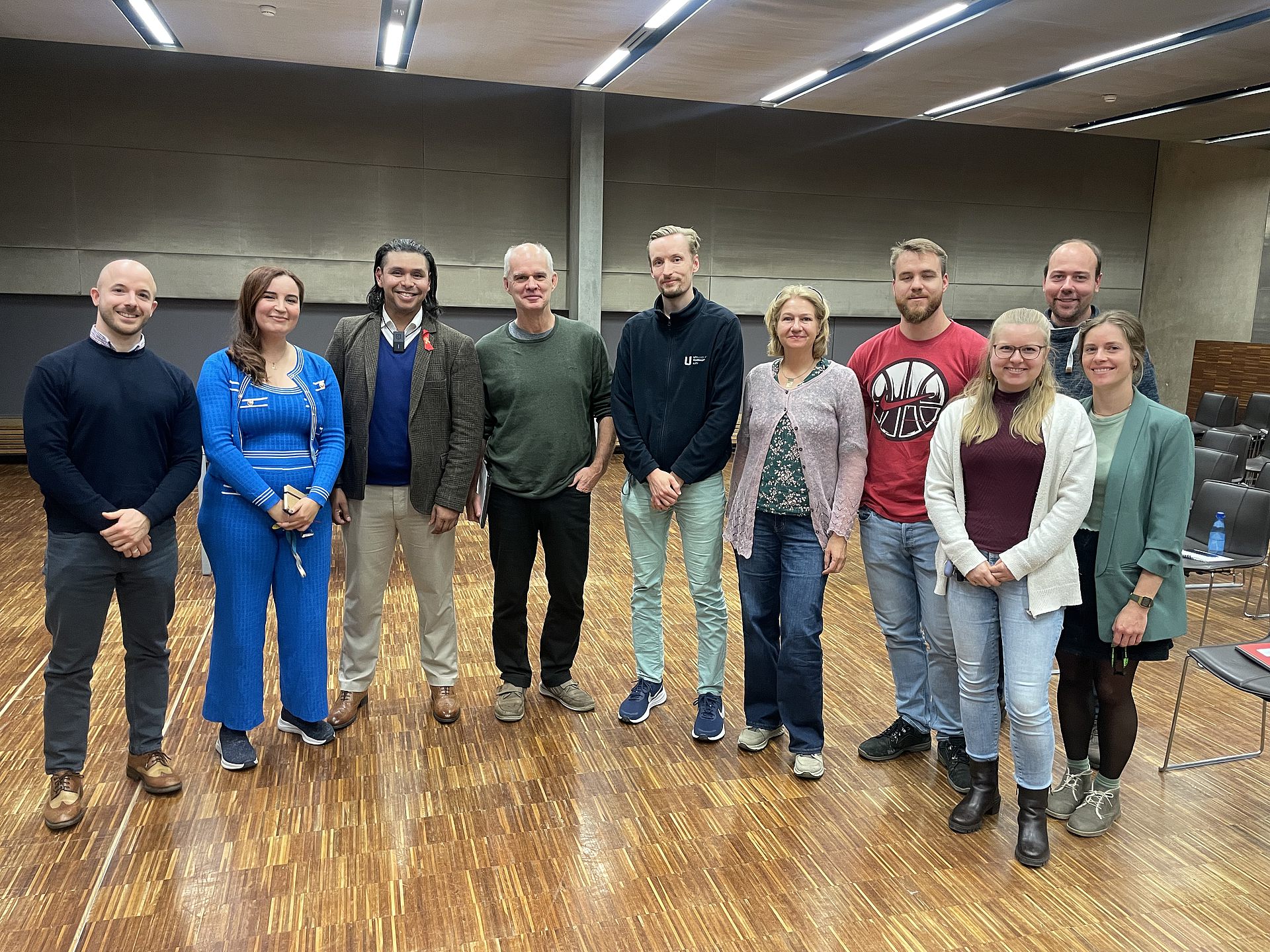Interviewing: The London patient
Adam Castillejo, better known as “The London patient”, visited the University of Ulm to share how courage, perseverance and science allowed him and five other people to cure HIV infection to a life without the virus. Read more about his experiences as an HIV-positive lymphoma patient, transplant recipient and survivor in the candid CRC 1279 interview below.
On Monday, 30th of September, Adam introduced himself to the audience of the CRC 1279 seminar, combining his pseudonym “The London Patient” with his current, very fitting title: “Ambassador of Hope”. He recounted the milestones of his journey to recovery, from 2003 to the present day. The man who faced two death sentences – first, HIV infection, and then lymphoma – spoke about the importance of integrity, humanity and communication, and about his contribution to science as a fundraiser for research.
S: How did your initial HIV diagnosis affect your working life as a chef, surrounded by sharp objects?
A: Society could permit to tell my employer at the time. Such a diagnosis puts a lot of pressure on you and the system did not allow you to share such information. At that time, your general practitioner was medically obliged to disclose your HIV status to other stakeholders, such as banks that asked for your personal information for mortgages. So, it was a stressful situation but since then we have made some progress.
S: I bet that was one of many for you. A bone marrow transplant, for example, carries many risks for the recipient. How long did it take you to fully recover from the transplant, which you described as such a challenge to your body and mind? How long did it take you to feel like your old self again?
A: Both took several years. Even after the medical procedure , I am still an immunocompromised patient and my health is monitored very closely. It is so subjective that after a few days of travelling I can feel much worse than the day before, especially lately when I travel a lot. It's all ups and downs. Environmental factors such as altitude and temperature changes take a huge toll on me and my perceived wellbeing.
S: Speaking of perceptions, you mentioned the harsh and unfortunate truth of a contrasting approach to patients with an HIV vs. cancer diagnosis. Having lived (and survived) both, can you share another memory that really highlights this difference?
A: Some clinicians are very supportive when you're a cancer patient, but not when you're an HIV patient. The combination of these diagnoses created a confusing mix of behavior. Oncologists began to treat me very differently as soon as they found out about my HIV diagnosis. Compassion was often replaced by a certain emotional distance. It's harder to have a conversation with such a doctor when you start walking on eggshells, trying to find out what they can and can't say. I also know for a fact that if I were to openly shout in a town square that I was a cancer survivor (for the sake of this thought experiment), people would congratulate me and pat me on the back. I imagine the reaction to my HIV cure would be drastically different if I actually went through with this social study. I probably should not.
S: I am sorry to hear that. But with all the fear, anxiety, depression and other mental struggles you went through, what moment do you look back on as a ray of hope that helped you fight to regain control of your life?
A: Surviving the first hundred days after the transplant was the first milestone. I could feel my hope growing. I knew that I had passed the critical point, even though I was struggling after the transplant. It really gave me the strength to keep fighting, just knowing that I was about to achieve the impossible: to be cured of the incurable. In 2019, I was announced at CROI and my medical team and I had to manage our expectations. I was afraid of a relapse, but after a year of continuously negative HIV tests, I was reassured and ready to come out and show the world who the London Patient really was. And I was petrified.
S: After this rollercoaster ride that has been your life, if you could go back in time to 2003, what would you tell yourself after receiving your HIV diagnosis?
A: Please don't be afraid. Everything will be fine. Be grateful for the people around you who make you feel human. They will help you carry on. Don't give up hope and don't let HIV define you.


